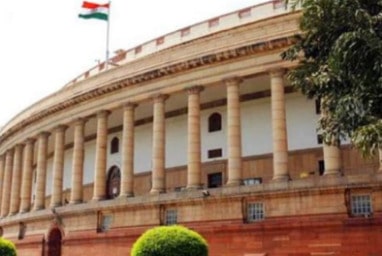The lower house of the Indian parliament Monday passed a bill establishing a central scheme for the purchase and sale of carbon credits. The bill also promotes clean energy by obligating certain large consumers of electricity to use renewable energy and conserve energy.
The Energy Conservation (Amendment) Act seeks to amend the two-decade-old Energy Conservation Act and introduce a carbon credit trading scheme. A carbon credit is a permit that allows the holder the “right” to emit one ton of carbon dioxide or the equivalent amount of another greenhouse gas (GHG) by offsetting it against the reduction of equivalent emissions. The emission reductions may either be “certified” and sold through a third-party regulator, such as the Clean Development Mechanism by the UN Framework Convention on Climate Change (UNFCCC), or “voluntary” and exchanged between buyers and sellers directly.
Under the carbon credit trading scheme proposed in the bill, registered entities will be issued carbon credit certificates which they can sell to other entities or individuals. The scheme incorporates the offset markets in energy efficiency and renewable energy that currently operate in India. While India has previously engaged in the global carbon credit market—with the city of Indore exporting UNFCCC-approved carbon credits for about $62,000 in 2020—the carbon credit certificates proposed in the bill can only be issued by the Indian government or agencies it authorizes. The Power Minister also reportedly stated the scheme would be wholly domestic.
In addition to carbon credits, the bill also mandates a minimum use of non-fossil fuel energy for certain “designated consumers” such as mining, steel, cement, textiles and chemical manufacturers, the transport industry and commercial buildings. The mandate expands the Bureau of Energy Efficiency’s “energy conservation code,” which specifies permissible energy consumption based on the area, to an “energy conservation and sustainable building code”, which provides standards for energy efficiency and renewable energy. Under the mandate, both commercial buildings and large residential buildings will be governed by this code. Motor vehicles and vessels will be governed by energy consumption standards that were previously applied to electrical equipment and appliances.
The bill comes in the midst of the federal cabinet’s commitment to reduce India’s GHG emissions by 45% and meet 50% of its energy requirements from renewable sources by 2030, with a long-term goal of achieving net zero emissions by 2070. The commitment was first introduced by Prime Minister Narendra Modi at the Conference of Parties to the UNFCCC in November 2021.
The Bill must now pass the parliament’s upper house before it can be signed into law by the President.
Article: India parliament passes bill to introduce domestic carbon credit market
